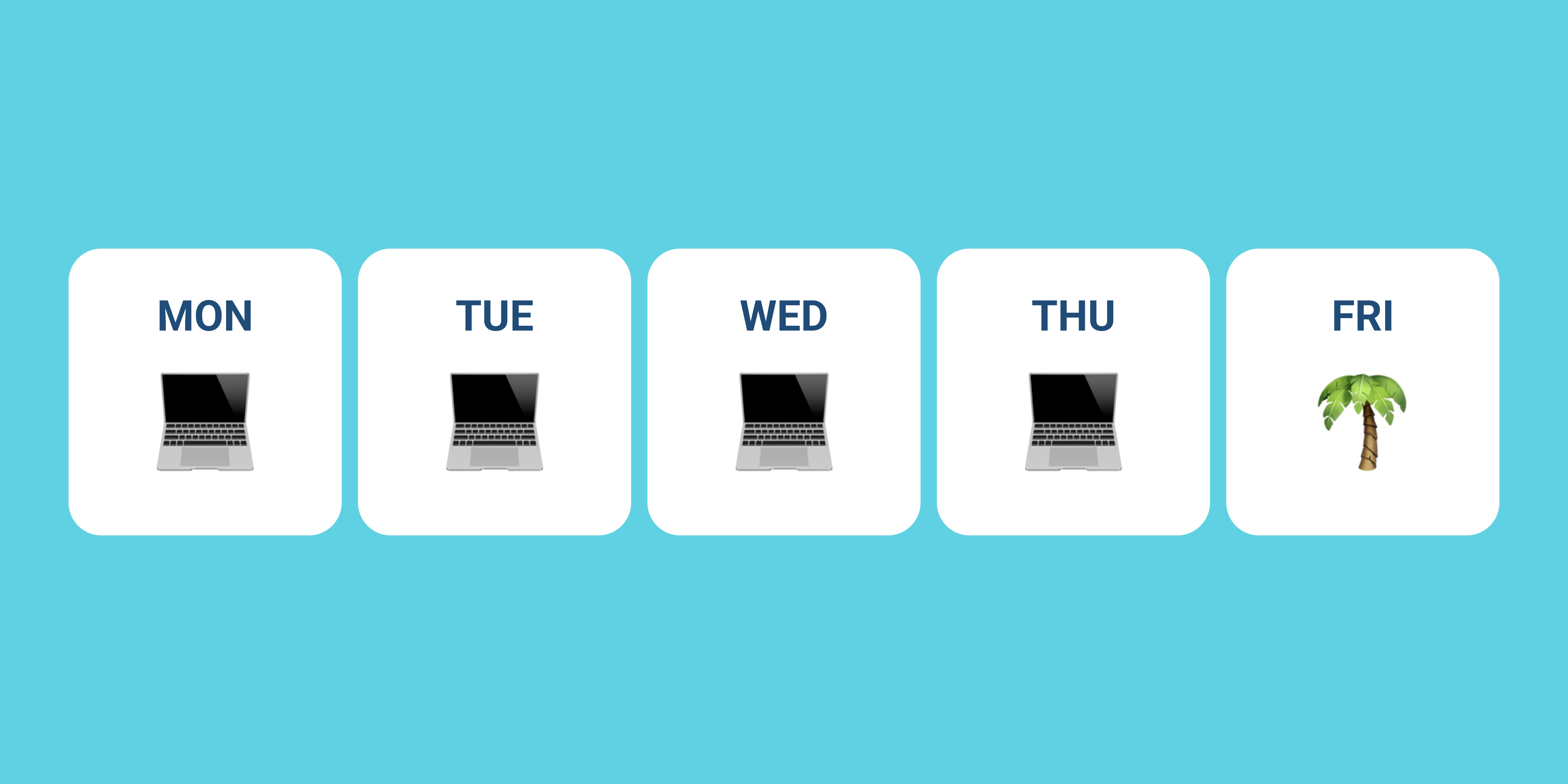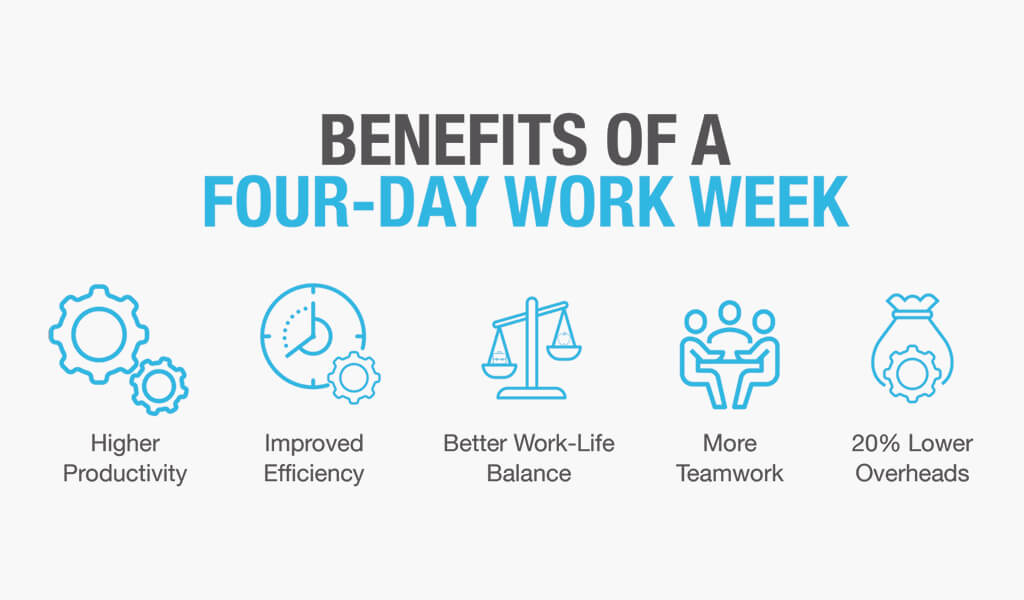In the UK, a significant 4-day workweek study got under way in June. Many of the associated firms claim it has benefited both employers and employees.

In brief:
- The midpoint of one of the largest 4-day work week experiments in history has been reached.
- Survey results from more than 70 UK firms that took part mostly indicate success.
- The pilot is "doing well," according to 88% of respondents, and 86% indicated they'll probably think about continuing this schedule when the trial is over.
One of the largest 4-day work week experiments in the world has started, and the preliminary findings are encouraging.
In the UK, 70 businesses started a six-month trial of a four-day workweek in June. The organization leading the experiment, 4 Day Week Global, published findings on the program's progress at the halfway point on Tuesday.

At the halfway point of the trial, a check-in survey asking how the study was doing was distributed to the 70 participating firms.
Of the 41 people who replied, 88% indicated that the new schedule was "good" working for business so far, and 86% said that they would be "likely" or "very likely" to consider maintaining a four-day work week when the trial finishes.
According to a news statement from Claire Daniels, CEO of Trio Media, one of the participating businesses, "We have had great success with the four-day workweek so far. High levels of productivity have been maintained, and the team's wellbeing has increased. Our company has also seen a 44% rise in financial performance."
In response to the most often voiced worry about four-day workweeks—a potential decrease in worker output—46% of respondents said their organization's productivity remained “around the same level,” another 34% said it “improved slightly,” and 15% claimed it had “improved significantly.”
The hardest part of the new schedule seemed to be taking a day out of the normal work week.
On a scale of 1 (very tough) to 5, (absolutely seamless), the firms were asked to describe how the switch to the four-day week had gone. 20% of respondents chose 3, which was in the midst between tough and smooth, while 29% of respondents chose 5 and 49% chose.
"The trial is going well for us, and we are pleased to be a part of it. It wasn't easy at first, but no significant change is ever," Managing Director of Waterwise, a different participating firm, Nicci Russell was quoted in the press statement. "We've all had to put in some effort; some weeks are easier than others, and things like annual leave can make it more difficult to fit everything in, but overall, we're lot more comfortable with it now than we were at the beginning."
Russell continued, "We certainly all welcome the additional day off of work and do come back rejuvenated. We're already more productive, and it's been fantastic for our health."
The four-day work week was proving to be beneficial for employees, according to Girling Jones, a company that participated in the experiment.
At the time, the company's associate director Fiona Blackwell remarked, "The reason we're doing it now is because people are happy."
Source: businessinsider.com








